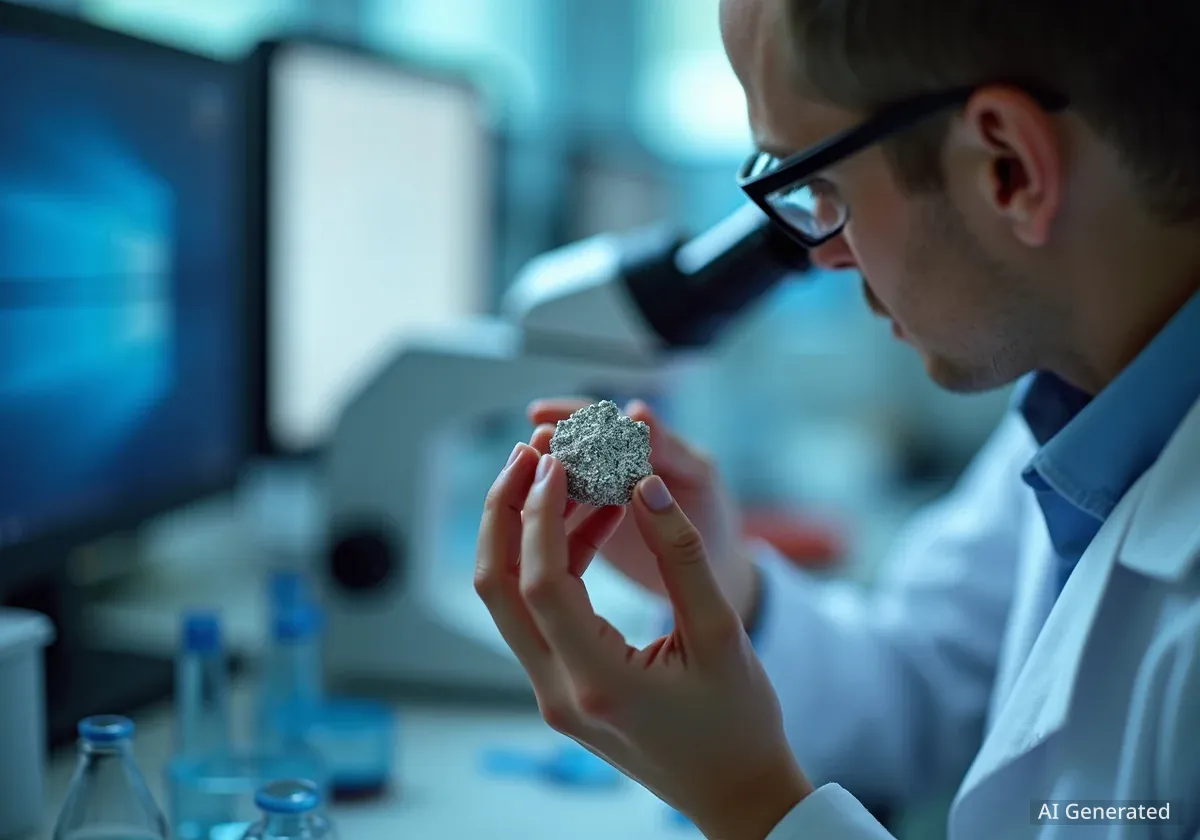The University of Arkansas has initiated a major partnership with industry leaders and nonprofit organizations to establish the state as a key player in the global lithium market. This collaboration led to the creation of the Arkansas Lithium Technology Accelerator (ALTA), the first program of its kind in the United States dedicated to advancing lithium technology and strengthening the battery supply chain.
Key Takeaways
- The University of Arkansas cofounded the Arkansas Lithium Technology Accelerator (ALTA), the nation's first accelerator for lithium innovation.
- The initiative aims to develop South Arkansas's vast lithium reserves, which are among the largest in North America.
- Key partners include The Venture Center, Standard Lithium, the Walton Family Foundation, and the Arkansas Economic Development Commission.
- The program has already hosted its first cohort of three technology startups, connecting them with university researchers and facilities.
A Strategic Partnership for a Growing Industry
The University of Arkansas has joined forces with The Venture Center and Standard Lithium to launch ALTA, a program designed to fast-track innovation in the lithium sector. The initiative has received significant backing from the Walton Family Foundation and the Arkansas Economic Development Commission, signaling strong support for the state's economic diversification.
Erik Pollock, director of the U of A Stable Isotope Lab and Trace Element and Radiogenic Isotope Lab, cofounded the accelerator. The program's primary goal is to leverage the significant lithium deposits found in South Arkansas, a region poised to become a domestic hub for this critical resource.
Lithium is an essential component in modern technology, particularly for batteries that power electric vehicles, smartphones, drones, and other electronic devices. By fostering a local lithium industry, Arkansas aims to create high-wage jobs and reduce the United States' dependence on foreign supply chains.
Why Lithium is Critical
Lithium is often called "white gold" due to its importance in the transition to renewable energy and advanced electronics. The global demand for lithium is projected to increase significantly over the next decade, driven largely by the expanding electric vehicle market. Establishing a domestic supply chain is considered a matter of economic and national security.
First Cohort of Startups Visits Campus
The university recently welcomed the inaugural ALTA cohort, which consists of three innovative startup companies. These companies are working on solutions that could transform the lithium and energy technology landscape.
The first group of participants included:
- Telescope Innovations: A company focused on developing new chemical processes for resource extraction.
- RAM Geothermal: A startup working on solutions related to geothermal energy, which can be linked to lithium extraction methods.
- Nano One: A technology company specializing in advanced materials for batteries.
During their visit, representatives from these companies met with University of Arkansas researchers specializing in diverse fields such as geophysics, battery science, and soft separation technologies. This interaction provides the startups with access to academic expertise that can help refine their products and processes.
"The ALTA cohort companies are on the frontline of the emergent lithium economy," said Erik Pollock. "It was great to have them on campus. It was a greater pleasure to see my research colleagues ready and willing to engage in everything from geothermal to next generation battery technologies."
University Resources Powering Innovation
The partnership provides startups with more than just academic guidance. The cohort companies toured state-of-the-art facilities at the university, including the Institute for Integrative and Innovative Research (I³R). They also received information about entrepreneurial support and access to startup spaces available through the university's ecosystem.
Margaret Sova McCabe, the university's vice chancellor for research and innovation, emphasized the institution's comprehensive role in this new economic sector.
"The U of A is uniquely equipped to support Arkansas' lithium initiatives," McCabe stated. "We offer solutions, from sustainable lithium extraction to production and deployment through the supply chain, to providing the workforce that will drive success."
The university's involvement is designed to create a pipeline of talent and technology, ensuring that Arkansas has the skilled workforce and innovative ideas needed to sustain a long-term lithium industry.
Arkansas's Lithium Potential
The Smackover Formation in South Arkansas, historically known for oil and gas production, holds one of the largest and most concentrated lithium brine deposits in North America. Companies are developing direct lithium extraction (DLE) technologies to pull the mineral from this saltwater brine in a more environmentally friendly way than traditional mining methods.
Future Steps for the Accelerator
While Arkansas's lithium industry is still in its early stages, continued investment and collaboration are expected to accelerate its growth. The ALTA program is a central part of this strategy, acting as a bridge between raw resources and commercial application.
The program is actively preparing for its next phase. According to organizers, ALTA is currently in the process of selecting its second cohort of startups. The official announcement of the new participants is scheduled to take place at the Arkansas Lithium Innovation Summit in Little Rock on October 28-29.
This ongoing effort highlights a concerted push by academic, private, and public sectors to position Arkansas at the forefront of a vital and rapidly expanding global market, transforming a regional resource into a national asset.





